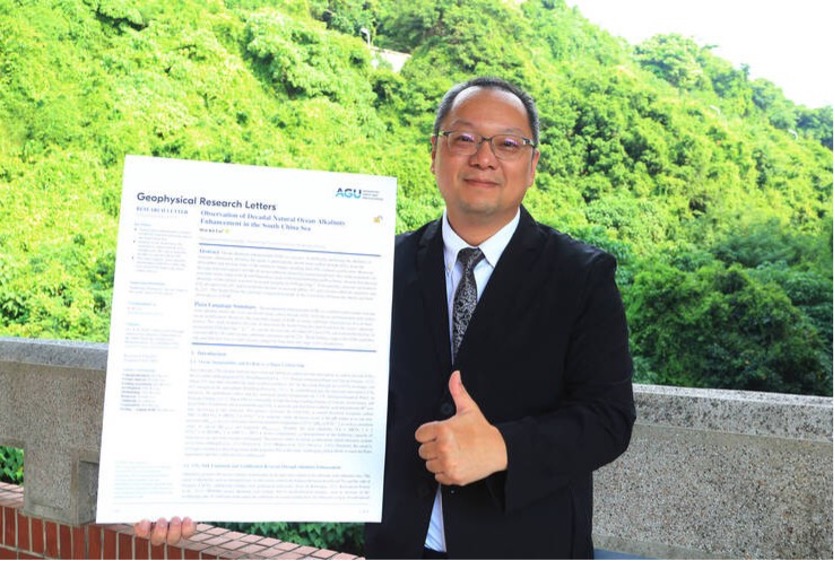“Our findings show that natural alkalinization can indeed support long-term carbon removal”
KAOHSIUNG, Taiwan — Ocean acidification is a growing threat to marine ecosystems, but new research led by National Sun Yat-sen University (國立中山大學) suggests that natural alkalinization could help offset the damage.
Lei Han-jie (雷漢杰), an assistant professor in NSYSU’s Department of Oceanography, analyzed 26 years of monitoring data from the South China Sea (南海) and found, for the first time, that seawater alkalinity in the region is rising. The increase boosts the ocean’s ability to absorb carbon dioxide by 28% and slows acidification by 14%.
“Human activity produces vast amounts of carbon dioxide. The ocean absorbs about 26% of this through air-sea exchange, but that has led to acidification,” Lei said. “Artificially raising seawater alkalinity has been proposed as a carbon removal method. Our findings show that natural alkalinization can indeed support long-term carbon removal, which proves the feasibility of applying such techniques.”
Lei’s team examined long-term data from the Southeast Asia Time-Series Study (東南亞時間序列研究) station, established in 1999 in the northern South China Sea. They discovered a steady rise in total alkalinity in surface waters, at a rate of 0.56 micromoles per kilogram each year. This natural increase partly offsets acidification and chemical changes caused by CO₂, enhancing the ocean’s resilience.
The study concluded that higher alkalinity not only improves the sea’s capacity to absorb carbon dioxide but also reduces the pace of declining calcium carbonate saturation by 22%.
“These observations match theoretical models very closely,” Lei said. “They demonstrate that ocean alkalinization is a viable path for carbon removal — one that also provides the dual benefit of slowing acidification.”



